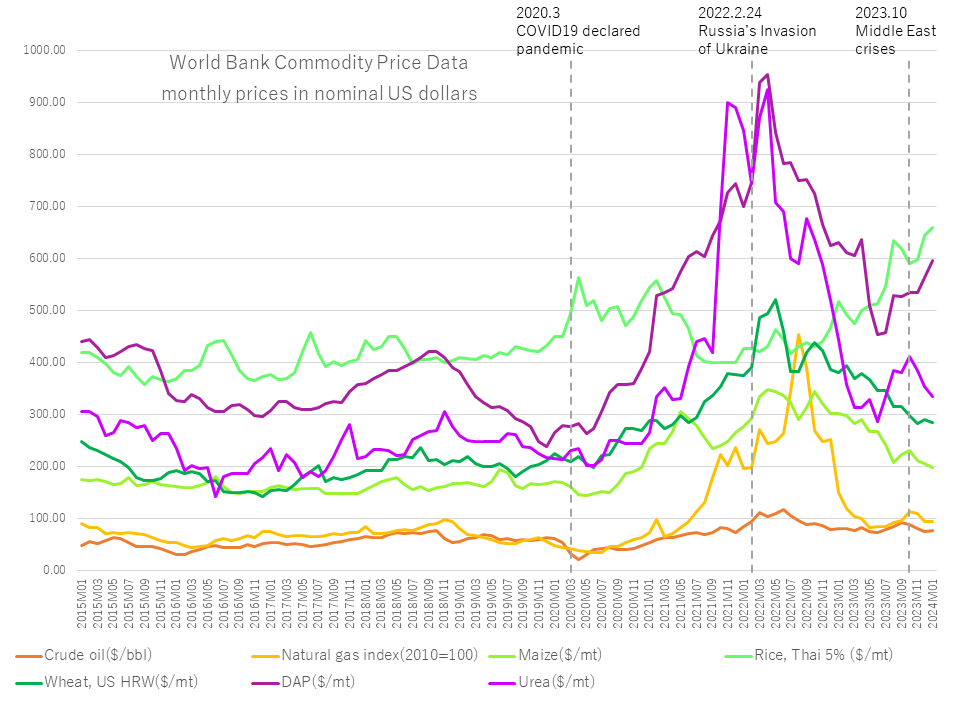Pick Up
963. Food System Risks Since Russian Invasion of Ukraine

963. Food System Risks Since Russian Invasion of Ukraine
Two years after Russia's invasion of Ukraine on February 24, 2022, record-high global food prices in 2022 have reminded the international community that food production depends on global supplies of fuel and fertilizer, and that supply chain disruptions due to geopolitical conflicts can directly lead to food security risks. This has triggered a renewed awareness in the international community that food production depends on global supplies of fuel and fertilizers, and that supply chain disruptions due to geopolitical conflicts can directly lead to food security risks.
While the price of chemical fertilizers made from natural gas has been on the rise since around 2021, Russia's invasion of Ukraine has raised concerns about supply chain disruptions, exposing food systems based on the relationship between fuel, fertilizer, and food to risk. Russia's invasion of Ukraine raised concerns about supply chain disruption, exposing the food system based on the relationship between fuel, fertilizer, and food to risk. The combination of these factors has pushed the global food, energy, and fertilizer price index to all-time highs in the March-May 2022 period.
Although global food prices have calmed since the July 2022 Black Sea Grains Agreement brokered by the United Nations and Turkey, the time lag will be reflected in food price inflation around the world, especially in food-importing countries that are in a period of currency depreciation, increasing food security vulnerability. Russia withdrew from the Black Sea Grains Agreement last July, and since last October, unrest in the Red Sea region triggered by conflict in the Middle East has become a new flashpoint for supply chain disruptions.
Meanwhile, risks arising from the limits of the global system are also influencing food price trends. In July last year, the United Nations Secretary-General described the coming of the era of global boiling, but extreme weather events caused by climate change not only have a direct impact on food production, but the food system itself, which depends on fuel and fertilizers, also contributes to climate change and biodiversity loss.
We need international cooperation to address food security uncertainties and holistic action through scientific and technological innovation and behavior change to build a resilient and sustainable food system.
Contributor: IIYAMA Miyuki (Information Program)
